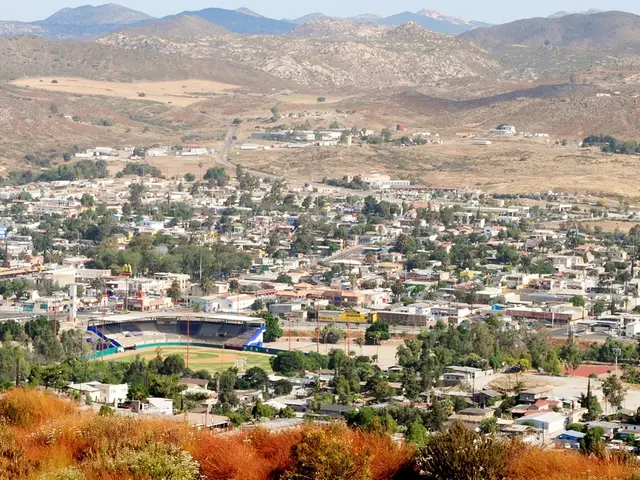Water management nominee retracts application due to opposition from certain Colorado River-related states
The negotiations about the future of water distribution from the Colorado River are currently at an impasse, with little progress being made. This complex seven-state discussion has been ongoing for some time, involving the Upper Basin and Lower Basin states.
Ted Cooke, who was nominated to serve as commissioner of the Bureau of Reclamation, has withdrawn from the nomination process at the request of the White House. Cooke spent more than two decades working for the Central Arizona Project before his nomination, and his withdrawal has left the top federal Colorado River agency without a permanent leader for eight months.
During his tenure, Cooke faced pushback from some politicians and water officials due to concerns about potential bias. Some policymakers in the Upper Basin expressed concern that Cooke might favor the Lower Basin during the process, given his previous employment.
Scott Cameron, a federal official, has stated he is involved in the seven-state negotiations. Other federal water officials are filling the gap left by the vacant top Reclamation role, but the absence of a permanent leader may make these negotiations more challenging.
The seven states that use the Colorado River are split into two camps: the Upper Basin, consisting of Colorado, Wyoming, Utah, and New Mexico, and the Lower Basin, which includes Arizona, Nevada, and California. State water leaders have stated that the threat of federal action can make it easier to find agreement. However, if states cannot reach a deal by a 2026 deadline, the federal government can step in and make decisions.
Cooke plans to stay in the Colorado River space despite withdrawing from the nomination process. No current information is available about the interim commissioner appointed for the Federal Office for Irrigation following Ted Cooke's resignation.
Any new plan for managing the Colorado River is likely to include cuts to demand, and Cooke's former employer is generally among the first entities to lose water under any plan for cutbacks. The negotiations about the Colorado River's water are of utmost importance, as any agreement will significantly impact the millions of people who rely on this vital resource.
As the negotiations continue, it remains to be seen how the absence of a permanent leader at the Bureau of Reclamation will affect the process and the eventual outcome. The stakes are high, and a resolution is needed to ensure the sustainable use of the Colorado River for generations to come.
Read also:
- United States tariffs pose a threat to India, necessitating the recruitment of adept negotiators or strategists, similar to those who had influenced Trump's decisions.
- Weekly happenings in the German Federal Parliament (Bundestag)
- Southwest region's most popular posts, accompanied by an inquiry:
- Discussion between Putin and Trump in Alaska could potentially overshadow Ukraine's concerns








